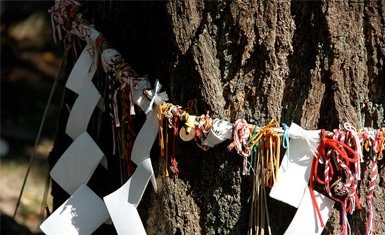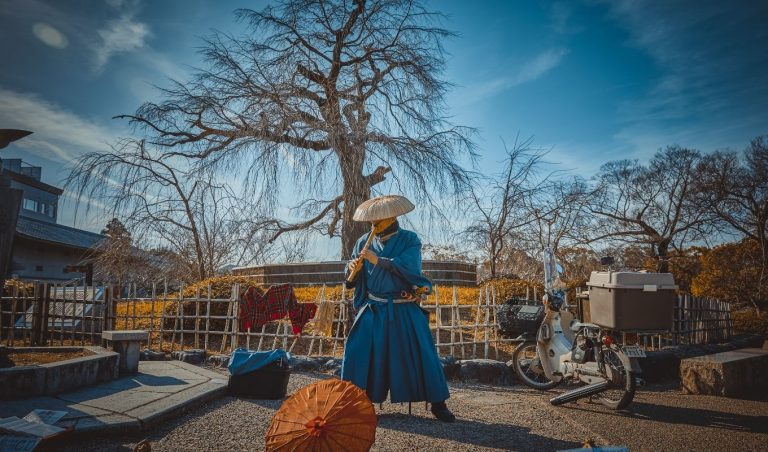During your stay in Japan, it is very likely that you will have to ask for directions or locations of important places. Here are 15 Japanese phrases that will serve you on the street.
Japanese phrases when walking
1. 国立 博物館 は ど こ で す か?
Kokuritsu hakubutsukan wa dokodesu ka (Where is the National Museum?) ○○ は 、 ど こ で す か? (Where is ○○?) It is perhaps the most important expression. Replace the circles with the name of the place you are looking for. Used to ask for a nearby location that is not in line of sight.
2. ま っ す ぐ ・ 右 ・ 左
Massugu migi hidari (Right, right, left) When asking for directions it is very important to understand them! These are the most basic words you will hear when you are given instructions.
3. ス カ イ ス リ ー ま で 、 遠 い で す か?
Massugu, migi, hidari (He Sky Tree is it far from here?) If you want to know if a destination is far from where you are, this expression is very useful. You can substitute ス カ イ ス リ ー for other popular destinations.
4. こ こ か ら 歩 け ま す か?
Koko kara arukemasu ka? (Can you walk from here?) After they tell you how to get there, you may want to know if it is accessible from where you are, or if it is a reasonable distance. If instead you want to ask if from that point you can get to where you currently are, the phrase changes: ○○ ま で こ こ か ら 歩 け ま す か (Can you walk from ○○ to here?)
5. ス カ イ ス リ ー ま で 、 ど う や っ た ら い け ま す か?
Sukaitsurī made, dō yattara ikemasu ka? (How can I get to the Sky Tree?) If the destination is not within walking distance it may be appropriate to ask by what means you can get there. If it is by bus, subway or train, this expression can help you.
6. あ り が と う ご ざ い ま し た
Arigatō gozaimashita (Thank you). It is vitally important to show your appreciation after they help you.
Japanese phrases in the taxi
7. ス カ イ ス リ ー ま で 、 お 願 い し ま す
Sukaitsurī made, onegaishimasu ([Lléveme] to the Sky Tree, please.) When telling the driver the destination, the expression ○○ ま で 、 お 願 い し ま す is enough.
8. ス カ イ ス リ ー ま で 、 大体 い く ら で す か?
Sukaisurī made, daitai ikuradesu ka? (More or less how much does it cost from here to the Sky Tree?) Getting around by taxi in Japan is very expensive, so you may want to ask the price before getting on one.
9. 浅 草 ま で 、 い く ら で す か
Asakusa made, ikuradesu ka (How much does it cost from here to Asakusa?) It’s a more direct way of asking for the price.
Japanese phrases on the subway / train
10. こ れ は 、 浅 草 に 行 き ま す か?
Kore wa, Asakusa ni ikimasu ka? (This [línea] going to Asakusa?) If you want to confirm that this route leads to your destination, this expression will be useful. When it comes to trains, you can ask if that train takes you to the city you want.
11. み ど り の 窓 口 は 、 ど こ で す か?
Midori no madoguchi wa, dokodesu ka? (Where is the green window?) JR stations have green windows that are information centers. You can ask for ticket information, which platform to go to, and so on. You can also reserve the train seat number if you have the Japan Rail Pass.
12. 浅 草 ま で 、 あ と い く つ で す か?
Asakusa made, ato ikutsudesu ka? (How many [estaciones/paradas] to Asakusa?) If you want to ask how many stations or stops are left from where you are, use this phrase. If it is the next station they will tell you: 次 の 駅 で す, “the next station”.
13. 着 い た ら 、 教 え て く だ さ い
Tsuitara, oshiete kudasai (Please let me know when you arrive.) If you travel by truck you can ask the driver to notify you when they arrive at the destination.
14. 浅 草 寺 は 、 ど っ ち で す か?
Sensōji wa, dotchidesu ka? (Which side is Sensoji on?) When exiting the subway you will probably see several exits. With this phrase you can ask for the closest exit to your destination.


